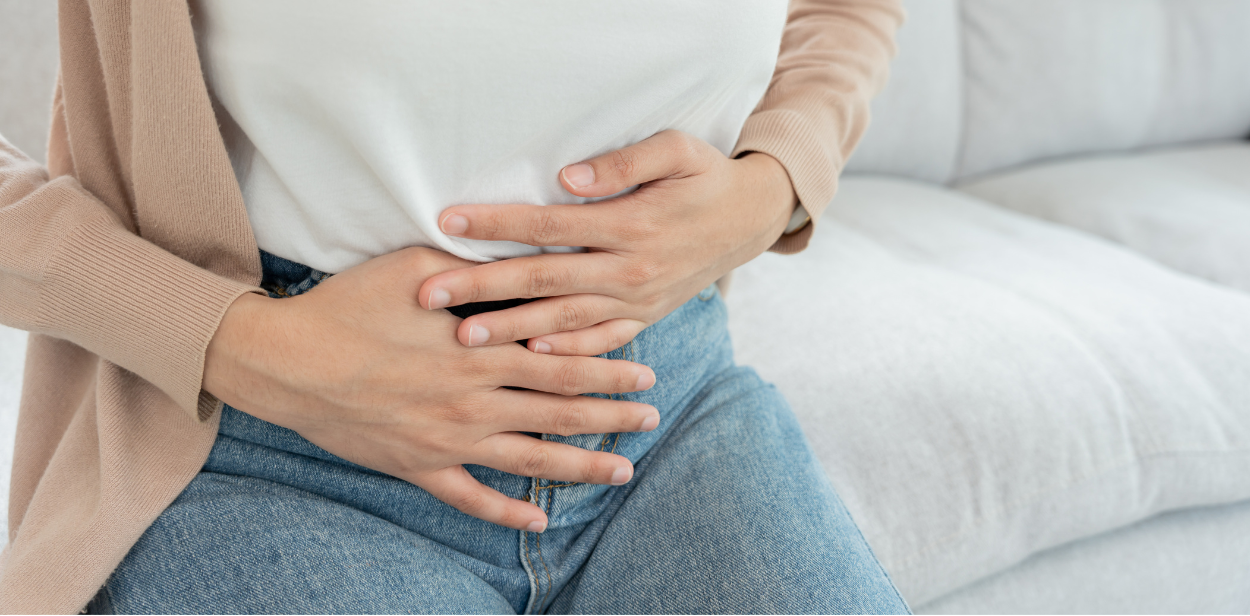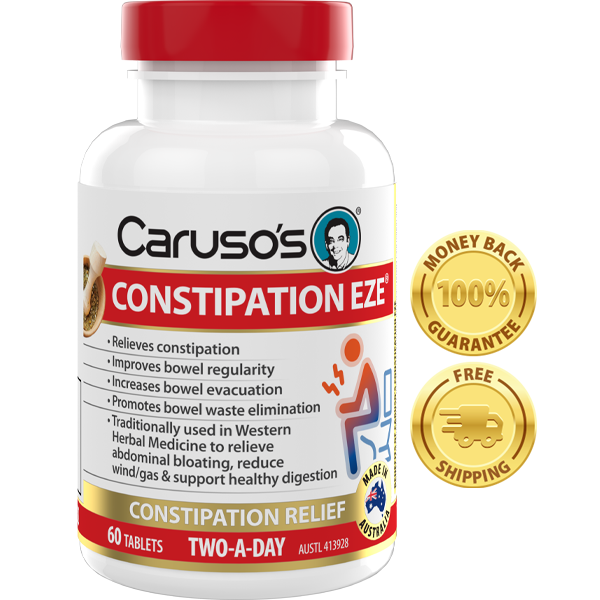
Relief from Constipation!
share
What is constipation?
Constipation is a common health issue that affects many Australians, whether as a chronic condition or as a temporary symptom as a result from other factors. It is characterised as uncomfortable or infrequent bowel movements, where stools are often hard, dry and difficult to pass. It may also be associated with straining, bloating, gas, pain, cramps and abdominal swelling.
Many factors can affect our bathroom habits, and each person has unique bowel patterns that define what is "normal" for them. Research shows that for adults, the normal range is from three bowel motions per day to three bowel motions per week. Constipation is defined as having three or fewer bowel movements per week.
The Rome IV criteria is a diagnostic tool used to define constipation, which is fulfilled with having:
- Straining
- Dry, hard or lumpy stools
- Sensation of anorectal obstruction or blockage
- Sensation of incomplete defecation
- Manual manoeuvring is required to defecate
According to the Rome IV criteria for constipation, an individual must have experienced two or more of the above symptoms, occurring for at least 25% of toilet visits, for the past three months, with symptom onset at least six months prior to diagnosis.
Causes of constipation
Our bowel health and regularity can be influenced by a range of factors, including overall health, age, ethnicity, personal and family medical history, as well as lifestyle choices like low physical activity, poor diet lacking in fibre, and inadequate water intake.
Changes to our health and daily routine such as travelling, can also affect our routines in the bathroom. Those at higher risk include older adults and women especially during pregnancy or after giving birth.
Digestive function is a key indicator of stool health, and it can be significantly affected by several factors, including prolonged laxative use, reduced intestinal transit time leading to slower stool movement and resisting the urge to defecate. Other influences include intestinal obstructions, anatomical issues, certain medications and dietary sensitivities.
How to manage constipation
Simple actions, like avoiding "holding it in" and keeping track of your bowel movements can help you understand your own patterns. Aim to go at the same time each day to try and establish a regular routine. Additionally, noting how different foods, drinks, or medications affect you can be beneficial.
Eating slowly and properly chewing your food can improve the digestive process, resulting in regular bowel habits. It is best to avoid processed and fast foods, such as white breads, pastas and pastries by swapping them for wholemeal and wholegrain sources. Fibre is essential for healthy digestion and the regularity of your bowel motions as it cannot be absorbed by the body and essentially sweeps through the digestive system.
Fibre-rich foods to increase in your diet include: Fruit such as berries, peaches, apricots, plums, apples, bananas, and pears—preferably with skins on. Tender-cooked vegetables like asparagus, broccoli, corn, squash, cabbage, carrots, and leafy greens. Legumes such as chickpeas, lentils, black beans, kidney beans, lima beans, and split peas, along with nuts and seeds.
Tip for extra fibre: Boost homemade meals with extra fibre from bran flakes, ground flaxseed, wheat bran, or psyllium husks.
The recommend daily intake of fibre is 30g per day for men and 25g per day for women, and can be gradually increased in the diet. To keep hydration up, aim to drink 1.5 – 2.5 litres of fresh, pure water each day. Regular physical activity is a lifestyle factor that can help improve constipation. Try to partake in at least 30 minutes of physical activity, 3 – 4 times per week.
Caruso’s Constipation EZE!
Caruso’s Constipation EZE combines a selection of herbal ingredients to relieve constipation and support regular bowel movements. It also includes resistant starch from Musa x paradisiaca, a fruit fibre powder derived from green bananas.
Herbal ingredients like Rumex crispus (Yellow Dock) and Frangula purshiana (Cascara) have been traditionally used in Western Herbal Medicine for their stimulant and laxative properties, which promote bowel evacuation and enhance bowel waste elimination. Foeniculum vulgare (Fennel) is also used in traditional Western Herbal Medicine for its carminative properties, which support healthy digestion, reduce abdominal bloating and distension, and relieve flatulence, thereby helping to alleviate digestive discomfort.
Caruso’s Constipation EZE comes in easy-to-take tablets, crafted to fit seamlessly into your daily routine with just two tablets a day. Experience relief from constipation and support regularity with Caruso’s premium, expertly chosen ingredients.
Try Caruso’s Constipation EZE today for a convenient solution to keep you feeling your best!
References
- Eat for Health. (2019). Nutrient Reference Values for Australia and New Zealand – Dietary fibre. https://www.eatforhealth.gov.au/nutrient-reference-values/nutrients/dietary-fibre
- John Hopkins Medicine. (2004). https://www.hopkinsmedicine.org/health/conditions-and-diseases/constipation
- (2022). Constipation - self-care. https://medlineplus.gov/ency/patientinstructions/000120.htm
- (2022). High-fiber foods. https://medlineplus.gov/ency/patientinstructions/000193.htm
- National Institute of Diabetes and Digestive and Kidney Diseases (NIDDK). (2018). Definition & Facts for Constipation. https://www.niddk.nih.gov/health-information/digestive-diseases/constipation/definition-facts
- National Institute of Diabetes and Digestive and Kidney Diseases (NIDDK). (2018). Symptoms & Causes of Constipation. https://www.niddk.nih.gov/health-information/digestive-diseases/constipation/symptoms-causes
- Queensland Government. (2017). https://www.qld.gov.au/health/condition/digestive-health/bowel-movement-problems/constipation
- Rome Foundation. (2021). Rome IV Criteria. https://theromefoundation.org/rome-iv/rome-iv-criteria/
- The Continence Foundation of Australia. (2024). https://www.continence.org.au/types-incontinence/faecal-incontinence/constipation
- Walter, S. A., Kjellström, L., Nyhlin, H., Talley, N. J., & Agréus, L. (2010). Assessment of normal bowel habits in the general adult population: the Popcol study. Scandinavian journal of gastroenterology, 45(5), 556–566. https://doi.org/10.3109/00365520903551332
- Werth, B. L., Williams, K. A., Fisher, M. J., & Pont, L. G. (2019). Defining constipation to estimate its prevalence in the community: results from a national survey. BMC gastroenterology, 19(1), 75. https://doi.org/10.1186/s12876-019-0994-0
Try it now

Caruso's Constipation EZE®
share
Stay Informed. Feel Your Best.
Get expert tips and actionable health advice. Be the first to hear about Caruso's product launches and receive exclusive promotional offers.
Join our newsletter today.
